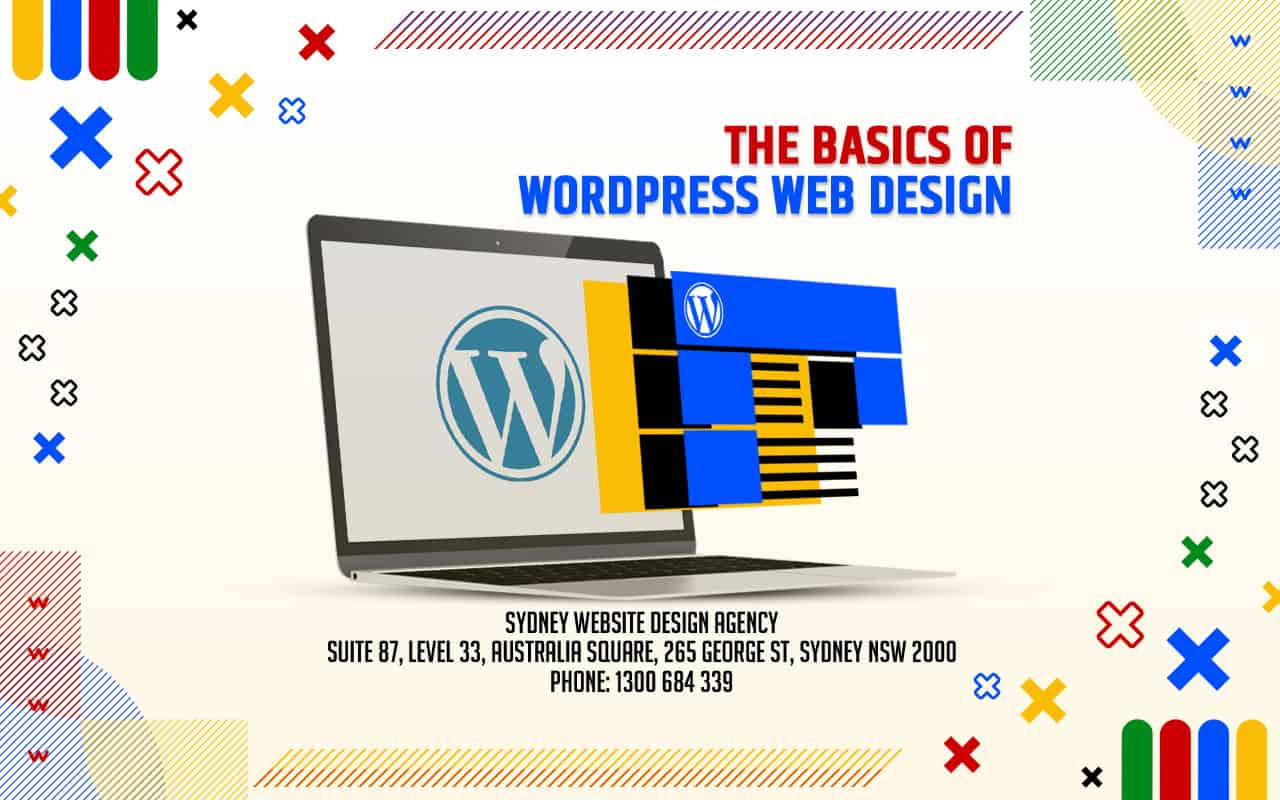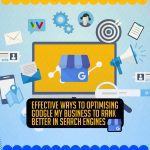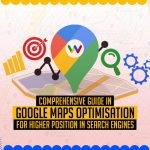WordPress is the most popular content management system (CMS) on the web. Although WordPress is incredibly versatile and cost-effective, sometimes other site builders are superior for small businesses. It drives 38% of all internet sites, both large and small, for both commercial and nonprofit organisations. You may create, manage, and scale any sort of website for your small business with it, including personal blogs, online stores, or anything else you can think of.
WordPress has a learning curve, to say the least. With new capabilities and updates added all the time, keeping up with it if you’re unfamiliar with coding or website design may be tough. Furthermore, because WordPress is open-source software, thousands of plugins and themes are available (both free and premium), which can add to the platform’s complexity considerably. It also features thousands of WordPress themes, making it easier for small businesses to customise and create their own website.
WordPress was initially created for blogging, and it has stayed true to that goal. The features and functions of a new WordPress site are all geared toward one objective: a well-designed, search engine-friendly blogging platform with content categorisation and tagging, link management, and comments. Creating an online store or eCommerce site has never been easier with a readily available WordPress theme available from WordPress itself and other websites.
WordPress’ plugins have given the platform added values, eCommerce and other features; Also award-winning graphic designers have made it a popular choice for design. WordPress is ideal for small companies because it is simple to use and offers a variety of features.
Introduction
WordPress is one of the most popular content management systems (CMS) available for building websites. It is used by millions of people around the world to create everything from simple blogs to complex corporate websites.
One of the main reasons WordPress is so popular is because it is very user-friendly and relatively easy to learn. Even people with no technical skills can use WordPress to create a professional-looking website.
Another advantage of using WordPress for web design is that there are thousands of plugins and themes available which allow you to easily customise your website to match your specific needs. There are also many professional WordPress designers who can create a custom website for you if you don’t have the time or skills to do it yourself.
WordPress is also a free domain search engine-friendly platform, which means that your website will be more likely to rank highly in search engine results pages (SERPs). This can lead to more traffic and potential customers finding your website.
Overall, using WordPress for web design is a great way to create a professional-looking website without spending a lot of money or time. If you are considering starting a website, then consider using WordPress as your platform.
Table of Contents
- What is WordPress?
- WordPress.org vs WordPress.com
- Advantages of WordPress Site Over Other Website Builders
- Why WordPress is a Favourite Choice for Small Businesses
- The Basics of WordPress Web Design
- Main Pillars in designing A WordPress Website
- Web Design in WordPress Tips for Effective Design
- Benefits of Using WordPress for Small Businesses
- FAQs
- Getting the Best results Out of WordPress Website
What is WordPress?

WordPress is a content management system (CMS). It is a software that helps you create and manage your website. As we mentioned before, it is open-source, which means that anyone can contribute code to the project.
WordPress is a content management system that was created in 2003 by Matt Mullenweg and Mike Little. It originally started as a simple blogging platform, but has since grown into much more. WordPress now powers 43% equivalent to 44 million websites out of all websites, and is used by major brands like The Guardian, Forbes, and The New York Times.
WordPress website has a plugin architecture and a template system, which means you may modify any website to suit your company’s needs, blog, portfolio, or online store.
WordPress was originally designed as a blogging platform rather than a full-fledged website. That isn’t the case anymore, however. With WordPress’ modified core code and a large ecosystem of plugins and themes, you can now create any sort of website with it. Some of these includes:
- Business Websites
- Portfolios
- Resume
- Ecommerce Websites
- Forum Websites
- Social Networks
- Article Hosting Websites
- Membership Sites, and more.
With WordPress continuously evolving itself to accommodate the changing needs of its users and its website visitors, we can expect plenty of exciting features from the brand in the future.
WordPress.org vs WordPress.com

WordPress.com and WordPress.org are two different platforms. They are often confused as the same although, in reality, they are quite very different from each other. Before you install WordPress, you need to know the difference between the two.
The best way to understand the difference between WordPress.com vs WordPress.org is to take a look at each platform individually.
WordPress.com
WordPress.com is a platform where you can create a website using WordPress software, but without having to install it yourself. You can think of WordPress.com as a turnkey solution for creating a WordPress website.
The main benefits of using WordPress.com are:
Ease of Use
Creating a website on WordPress.com is as easy as creating a blog post. You don’t need any technical skills or knowledge to get started.
No Hosting Required
WordPress.com takes care of all the hosting and maintenance for your website traffic. All you need to do is create an account and start creating your website. You can buy your domain name directly from WordPress.com.
Free Option Available
WordPress.com offers a free plan that you can use to create a basic website. If you require more features, there are also paid plans available.
The main downsides of using WordPress.com are:
Limited Customisation Options
Since WordPress.com takes care of all the hosting and maintenance for you, they also place some limitations on what you can do with your website. For example, you can’t install your plugins or themes, and you’re also limited in terms of storage space and bandwidth. Creating a custom WordPress website that exactly fits what you prefer or need can be quite challenging with WordPress.com.
Paid Plans Are Expensive
If you want to remove the limitations placed on your website by WordPress.com, you’ll need to upgrade to a paid plan. These plans can be quite expensive, especially if you must add more than one user to your web hosting account. Some WordPress plugins can also be expensive to subscribe in. Thus, installing WordPress site via WordPress.com may limit you Additionally, some web hosting provider
WordPress.org
WordPress.org is a platform where you can download the WordPress software and install it on your web server. You can think of WordPress.org as a DIY solution for creating a WordPress website. You can get your own domain name from a different provider, and you can personalise your web design with a different website hosting account.
The main benefits of using WordPress.org are:
Complete Freedom
When you use WordPress.org, you have complete control over your website. You can install any plugins or themes you want, and there are no storage or bandwidth limitations. You can hire WordPress experts to help you in installing WordPress and personalising your website.
Cost-Effective
Since you’re hosting your own website, the only cost associated with using WordPress.org is the price of your web hosting plan. This can be quite cost-effective, especially if you choose a shared hosting plan or a managed WordPress hosting. You can pick your own custom domain name elsewhere or a custom WordPress theme from a different source.
The main downsides of using WordPress.org are:
Requires Technical Skills
Since you’re responsible for installing and maintaining your website, you need to have some technical skills and knowledge. If you’re not comfortable working with code or don’t have any experience with web hosting, then WordPress.org may not be the best platform for you.
Takes Time to Set Up
To create a website via WordPress.org website can take a bit of time, especially if you’ve never done it before. If you’re not comfortable working with code or don’t have any experience with web hosting, then WordPress.org may not be the best platform for you.
WordPress.com vs WordPress.org: Which Web Host Should You Use?
Now that you know the difference between WordPress.com and WordPress.org, you may be wondering which one you should use for your website.
The answer to this question depends on your needs and preferences. If you’re looking for an easy-to-use platform with no technical skills required, then WordPress.com is a good option. However, if you’re looking for a platform with complete freedom and control, then WordPress.org is a better option.
If you’re still not sure which platform to use, we recommend starting with WordPress.com. Have a feel of your web pages or your eCommerce stores with WordPress.com. It’s easier to use, and you can always upgrade to WordPress.org later if you need to.
Advantages of WordPress Site Over Other Website Builders

Many small business owners have to choose between WordPress and a website builder. And rightfully so – building a website for a small business is crucial and can get demanding quickly. So, the decision has to make sure it will be good enough to meet all the right boxes from the start.
It is common knowledge that website builders are simple to use and usually result in decent websites, but have you ever considered WordPress? It’s widely known as the best CMS on the market, and developing a website with WordPress is both fun and adaptable.
When it comes to picking the best architecture design or type for your home, there are many factors to think about, including flexibility, simplicity of use, maintenance, scalability, and customisation. Similar factors imply to when deciding a website platform.
So, why WordPress instead of other website builders? Here are the advantages:
Flexibility
WordPress is a Content Management System (CMS), which means it’s core software is designed to be flexible and easily adaptable. That means you can use WordPress for any type of website, from a simple blog to an online store or business website.
On the other hand, website builders are typically limited to specific types of websites, such as eCommerce sites or portfolios. So if you ever want to change your ecommerce website again, you might have to start from scratch.
Simplicity of use
Website builders are often advertised as being easy to use. And they are – to a certain extent. But if you ever would like to do something beyond the basics, you’ll quickly find yourself stuck.
With WordPress, on the other hand, you can do anything you want. And if you get stuck, there’s a vast community of WordPress users and developers who can help you out.
Maintenance
WordPress’s websites are easy to maintain. You can update your content, add new pages, and make changes without having to hire a developer.
On the other hand, website builders typically require you to contact their customer support to make even the simplest of changes.
Scalability
As your business grows, so can your WordPress website. You can add new features and functionality as needed without having to rebuild your website from scratch.
Website builders, on the other hand, are often limited in terms of scalability. If you ever need to do more than what the builder allows, you’ll have to start from scratch – wasting all the time and effort you put into your original website.
Customisation
WordPress is an open-source platform, which means there are thousands of themes and plugins with different function available for you to use. You can customise your website to look and function exactly the way you want.
Website builders are usually limited in terms of customisation. You might be able to change your website’s colour scheme or font, but you won’t be able to add new features or significantly change the look and feel of your site.
These are just some advantages of using WordPress over other website builders. So if you’re looking to build a website for your small business, WordPress is the way to go.
Why WordPress is a Favorite Choice for Small Businesses

WordPress is a fantastic method to add value to your internet presence without having to invest a lot of time and effort into it.
Quality WordPress websites are not just for big businesses with large budgets-anyone can benefit from driving traffic to their site.
So, why is it very ideal for small businesses?
1. You can do it yourself
WordPress is very user-friendly, and you can create a website all by yourself without any prior experience in web design or coding. All you need is a little time and some creativity.
2. You don’t need to be a tech expert
Again, because WordPress is so user-friendly, you don’t need to be a tech expert to create and run a website. As long as you can use a computer and surf the internet, you’re good to go!
3. It’s cost-effective
One of the best things about WordPress is that it’s free! Sure, you might have to pay for hosting and a domain name, but that’s it. There are no hidden costs or unexpected fees.
4. You can customise it to fit your needs
With WordPress, you can easily find and then install plugins, themes and plugins to make your website look and function exactly the way you want it to. If you can dream it, odds are you can do it with WordPress.
5. It’s scalable
Whether you’re just starting out or you’re a seasoned pro, WordPress can grow with you. As your business expands, your website can too!
6. It has a large community of users
Because WordPress is so popular, there is an incredibly large community of users who are always willing to help out and offer advice. No matter what question you have, someone has probably already asked it and there’s an answer out there waiting for you.
7. It’s secure
WordPress is constantly being updated with the latest security features to ensure that your website is safe and protected from hackers.
8. It’s search engine friendly.
WordPress’s websites are designed with search engine optimisation (SEO) in mind, which means that your site will be easy for Google to find and rank high in the search results.
9. You can make money from it
If you really want to, you can actually make money by selling products or services through your WordPress website. There are plenty of plugins and themes available to help you turn your site into an eCommerce powerhouse.
Overall, WordPress is an incredibly powerful and versatile platform that offers a lot of value for small businesses. If you’re looking to create a website but don’t want to spend a lot of money or time doing it, WordPress is definitely one of the best options available out there.
The Basics of WordPress Web Design

Are you looking for a way to make your company’s WordPress website design more appealing and conversion-friendly? But are you unsure about the many intricacies of WordPress website creation?
This article will explain different aspects of WordPress website design, and help you to determine answers for some important questions that every WordPress website owner should know.
WordPress.com is a web hosting company that allows you to create blogs for free–you don’t need to buy any extra hosting services to create basic pages. In other words, it provides blog hosting services. If you sign up with WordPress.com, your blog page domain will look like this: myblog.wordpress
If you’re a beginner looking to start a blogging website on a budget, WordPress.com may be the perfect choice for you. Although it has several limitations compared to WordPress.org, it is still a great option overall.
How much does it cost to run a WordPress website?
WordPress is entirely free to download from their website. However, every company must pay for hosting and a domain before they can get free wordpress to create a website.
If you want to download or integrate paid plugins and themes, then the cost will increase. Additionally, the WordPress website design cost also varies depending on the type of website you are creating.
Standard and eCommerce websites typically cost anywhere from $5,000 to $40,000 depending on the design, number of pages, and difficulty.
If you’re looking to build a WordPress website, the cost will generally fall into one of two categories:
- the basic charge for hiring a developer or WordPress design company,
- depending on the type of site you want built.
If budget is a concern, we always recommend working with a professional WordPress design company so that your final product appeals to your target customer base.
Main Pillars in designing A WordPress Website
Now that you have finally understood the basic of WordPress Web Design, it is time to dig deeper and get a glimpse of the basics on how we actually do it. These are the basics steps in building a WordPress web design best suited for small businesses.
Choose a domain name for your website
Hosting and WordPress installation
Selecting a WordPress theme
Installing essential plugins
Creating pages and posts
Adding media files to your website
Widgets and menus configuration
Going live with your WordPress website!
Performing regular backups
Security measures for your website
1. Decide on a domain name for your website. This will be the address people use to find your site (www.). Try to keep it short, sweet, and easy to remember. You can always change it later if you need to, but it’s better to get it right the first time.
2. Find a web hosting service that supports WordPress. There are many options available on the web. It would be best to work with a web hosting company close to your business location. It makes communicating with them easier and most of the time, they are also the most affordable ones compared to bigger brand names.
3. Selecting a WordPress theme. This is the design of your website. You can find free themes in the WordPress theme directory or purchase premium themes from marketplaces like Theme Forest.
4. Installing essential plugins. These are tools that add extra features to your website, like contact forms, social media integration, and security hardening.
5. Creating pages and posts. This is the content of your website. Pages are typically static content, like your About Us or Contact Us page. Posts are articles or blog entries that are published regularly.
6. Adding media files to your website. This could be images, videos, or documents that you want to share with your visitors.
7. Widgets and menus configuration. This is the process of setting up what appears in the sidebars and menus of your website.
8. Going live with your WordPress website! Once everything is set up and working the way you want it, it’s time to make your site public, so everyone can see it.
9. Performing regular backups. It’s important to create backups of your website regularly in case something goes wrong, and you need to restore it from a previous point in time.
10. Security measures for your website. This is essential to protect your site from hackers and malicious software. There are many security plugins available for WordPress, so choose one that fits your needs.
These are just the basics of setting up a WordPress website. If you need more help, there are plenty of resources available online, or you can hire a professional to assist you. With a little time and effort, you can have a great-looking website that represents your small business well.
Step-by-Step Process in Creating Web Design in WordPress

Now that you have finally understood the basic of WordPress Web Design, it is time to dig deeper and get a glimpse of the basics on how we actually do it. These are the basics steps in a step by step guide building a WordPress web design best suited for small businesses.
- Choose a domain name for your website
- Hosting and WordPress installation
- Selecting a WordPress theme
- Installing essential plugins
- Creating pages and posts
- Adding media files to your website
- Widgets and menus configuration
- Going live with your WordPress website!
- Performing regular backups
- Security measures for your website
- Decide on a domain name for your website. This free domain name will be the address people use to find your site (www.). Try to keep it short, sweet, and easy to remember. You can always change it later if you need to, but it’s better to get it right the first time.
- Find a web hosting service that supports WordPress. There are many options for wordpress hosting services available on the web. It would be best to work with a web hosting company close to your business location. It makes communicating with them easier and most of the time, they are also the most affordable ones compared to bigger brand names.
- Selecting a WordPress theme. This is the design of your website. You can find free themes in the WordPress theme directory or purchase premium themes from marketplaces like Theme Forest.
- Installing essential plugins. These are tools that add extra features to your website, like contact forms, social media integration google analytics, and security hardening.
- Creating pages and posts. This is the content of contact page on your website. Pages are typically static content, like your About Us or Contact Us page. Posts are articles or blog entries that are published regularly.
- Adding media files to your website. This could be images, videos, or documents that you want to share with your visitors.
- Widgets and menus configuration. This is the process of setting up what appears in the sidebars and menus of new page of your website.
- Going live with your WordPress website! Once everything is set up and your site title working the way you want it, it’s time to make your site public, so everyone can see it.
- Performing regular backups. It’s important to create backups of your website regularly in case something goes wrong, and you need to restore it from a previous point in time.
- Security measures for your website. This is essential to protect your site from hackers and malicious software. There are many security plugins available for WordPress, so choose one that fits your needs.
These are just the basics of setting up a WordPress website. If you need more help, there are plenty of resources available online, or you can hire a professional to assist you. With a little time and effort, you can have a great-looking website that represents your small business well.
Web Design in WordPress Tips for Effective Design

WordPress offers a wide range of design features that can be used to create an effective website. However, with so many options available, it can be difficult to know where to start.
Here are a few tips to help you get started:
- Use a WordPress theme that is responsive and mobile-friendly.
- Pick a colour scheme that is easy on the eyes and makes your content stand out.
- Utilise plugins to add functionality to your site without having to hire a developer.
- Take advantage of WordPress’ customisation options to personalise your site’s design.
- Use high-quality images and videos to make your content more engaging.
- Use typography to add visual interest and improve readability.
- Optimise your website for search engine ranking so that potential customers can find you easily.
- Make sure your website’s design is consistent across all devices and browsers.
- Test your website regularly to ensure that it is functioning properly.
- Always back up your WordPress site before making any changes or updates.
These are just a few of the many things to consider when designing a WordPress website. By following these tips, you can create a site that is both effective and appealing to your target audience.
Benefits of Using WordPress for Small Businesses

Small firms with tight financial constraints can use this platform to save money easily. It enables a non-technical individual to modify, create new pages, and publish entries without the assistance of a designer. Moreover, a wide variety of features and plugins are available for free, which would cost hundreds of dollars if purchased from another web design company. Overall, WordPress is a great option for small businesses who want to create a professional website without breaking the bank.
When it comes to creating a website, there are many options available. However, not all website platforms are created equal. WordPress is one of the most popular website platforms in the world and is used by millions of people to create everything from simple blogs to complex eCommerce sites.
Small businesses and nonprofits can benefit from using WordPress because it is free and easy to use. WordPress is also a very versatile platform that can be used for a variety of purposes, such as creating a website, developing a blog, or even setting up an online store. Additionally, WordPress is SEO-friendly, so businesses can optimise their websites for search engines and attract more visitors.
Web Design in WordPress Frequently Asked Questions
Is WordPress ideal for creating stunning websites?
Can I go on using WordPress site for free for my business?
Getting the Best Out of Your WordPress Business Website

If you are running a business, it is important to have a website that represents your company in the best way possible. WordPress is a great platform for creating business websites, as it is easy to use and has plenty of features that can be customised to match your needs.
There are many professional WordPress designers who can create a custom website for you, or you can use one of the thousands of themes and plugins available to make your own site look exactly how you want. WordPress is also a very popular platform, so there are plenty of resources available online if you need help setting up your website.



















































